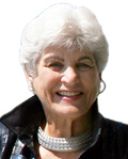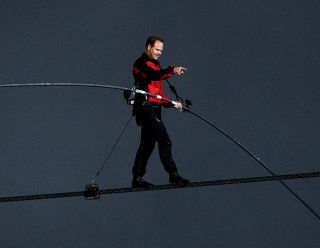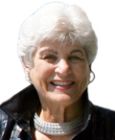

According to the dictionary, hope is "a feeling of expectation and desire for a certain thing to happen." Let's look at some examples of the role hope played in the lives of celebrities as well as everyday individuals.
- Nik Wallenda did the impossible. He walked across the Niagara Falls to the cheers of millions. He had dreamed of doing this since age 6 and kept hoping he could make it happen.
- Diane Sawyer’s interview with Jaycee Duggard (July 10, 2011) was riveting. A young girl, kidnapped at age 11, kept in a shed with no sunlight in the pedophile and his wife’s back yard for 15 years, gave birth to 2 of his children in her early teens. Somehow. Maybe she survived because she never gave up hope that one day she would be free. Diane Sawyer kept asking how was she able to survive. She said, “You do what you have to do.” Eventually, she was allowed to see out the window where she rememberied how she and her mother used to look at the moon. This kept hope alive that she would once again be with her mother. In the interview she came across as a resilient person who was now looking to the future.
- One day I had dinner with a close friend; the next day she received the news that she had bone cancer. I suddenly understood the saying, “life can change on a dime.” The doctors assured her that with radiation she would be able to live with it. She, her family and friends are wondering—can she beat this? Is there hope?
- Natalie, recently widowed after her husband’s long illness, was interested in pursuing a relationship with a friend who also was widowed. He made it clear that he liked her but was not going to get seriously involved with anyone. He sent mixed messages sometimes acting as if he were interested while saying he was never going to get involved again. Her close friends urged her to hang in there, to have hope. She wanted to believe them but felt he really meant what he said. Should she hold onto false hope?
We talk about the importance of hope. Poems are written about it, we know it is critical but what is it really? How do we get it when we need it? The late C.F. Snyder, Distinguished Professor at the University of Kansas, spent a lifetime developing a theory of hope.First, one has a goal. Nik had a goal from the age of 6 to walk across the Niagara Falls. Jaycee had a goal—to escape and return to her mother. My friend has a goal—to get well. Natalie has a goal—to establish a loving relationship with someone. But, according to Snyder, if all they do is hope, they probably won’t reach their goal. Snyder points out that to achieve a goal, one has to develop pathways and strategies to reach the goal. And sometimes, even the best pathways are blocked. In addition, one needs to be resilient so if the goal is blocked one goes to Plan B.
So here are some questions to consider as you consider a goal:
1. How do I know whether or not to keep hoping? When is it time to give up and move to something else? Jaycee might have become discouraged but she never gave up. My friend with cancer is holding onto the hope that her pain can be controlled and she can live for a while with the cancer. Natalie’s hope is dimming and she has changed her goal—to find someone, maybe not him.
2. How can I increase my chances of reaching my goal? Can I increase my strategies? According to a summary of Snyder’s book, The Psychology of Hope, successful people have the ability to 1) envision a broader range of goals than most people; 2) have greater will power and energy in pursuing those goals; and they have the skills to generate a greater variety of routes to reach their objectives. Wallenda told ABC TV that his success was due to his faith, preparation, training and skill. He was quoted as saying, “I’m completely cool and calm because I have the skill and I have the training”…and my faith in Jesus.

My take away: Hope is a critical, but not the only, ingredient necessary for reaching one’s goals. Hanging in there and increasing your skills is part of the equation.
Nancy K. Schlossberg
Author, Revitalizing Retirement: Reshaping your Identity, Relationships, and Purpose
Copyright, 2012

